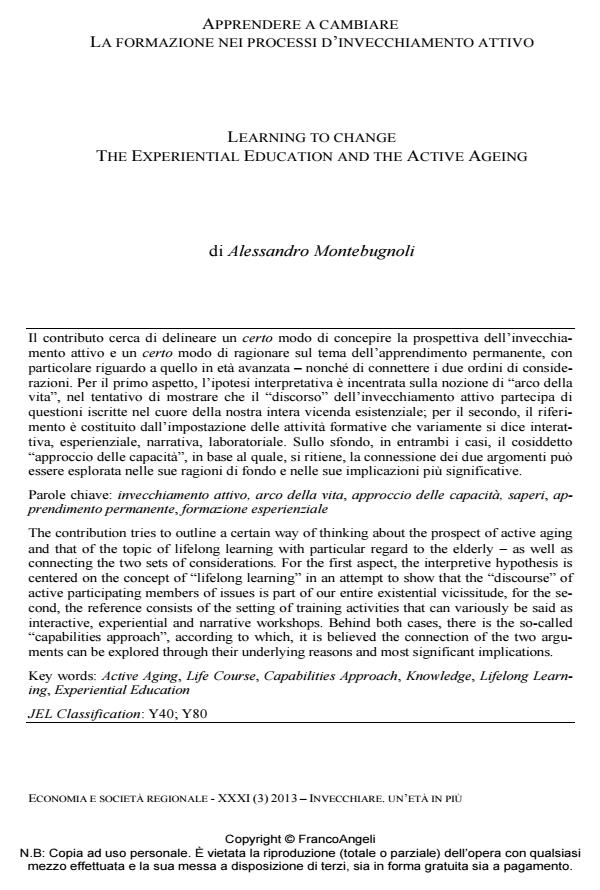Learning to change the experiential education and the active ageing
Journal title ECONOMIA E SOCIETÀ REGIONALE
Author/s Alessandro Montebugnoli
Publishing Year 2014 Issue 2013/3
Language Italian Pages 9 P. 50-58 File size 688 KB
DOI 10.3280/ES2013-003006
DOI is like a bar code for intellectual property: to have more infomation
click here
Below, you can see the article first page
If you want to buy this article in PDF format, you can do it, following the instructions to buy download credits

FrancoAngeli is member of Publishers International Linking Association, Inc (PILA), a not-for-profit association which run the CrossRef service enabling links to and from online scholarly content.
The contribution tries to outline a certain way of thinking about the prospect of active aging and that of the topic of lifelong learning with particular regard to the elderly as well as connecting the two sets of considerations. For the first aspect, the interpretive hypothesis is centered on the concept of "lifelong learning" in an attempt to show that the "discourse" of active participating members of issues is part of our entire existential vicissitude, for the second, the reference consists of the setting of training activities that can variously be said as interactive, experiential and narrative workshops. Behind both cases, there is the so-called "capabilities approach", according to which, it is believed the connection of the two arguments can be explored through their underlying reasons and most significant implications.
Keywords: Active Aging, Life Course, Capabilities Approach, Knowledge, Lifelong Learning, Experiential Education
Jel codes: Y40; Y80
Alessandro Montebugnoli, Apprendere a cambiare la formazione nei processi d'invecchiamento attivo in "ECONOMIA E SOCIETÀ REGIONALE " 3/2013, pp 50-58, DOI: 10.3280/ES2013-003006